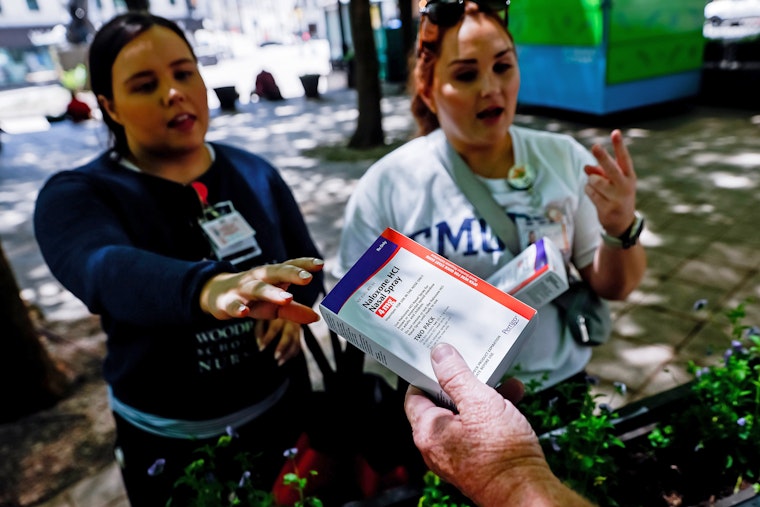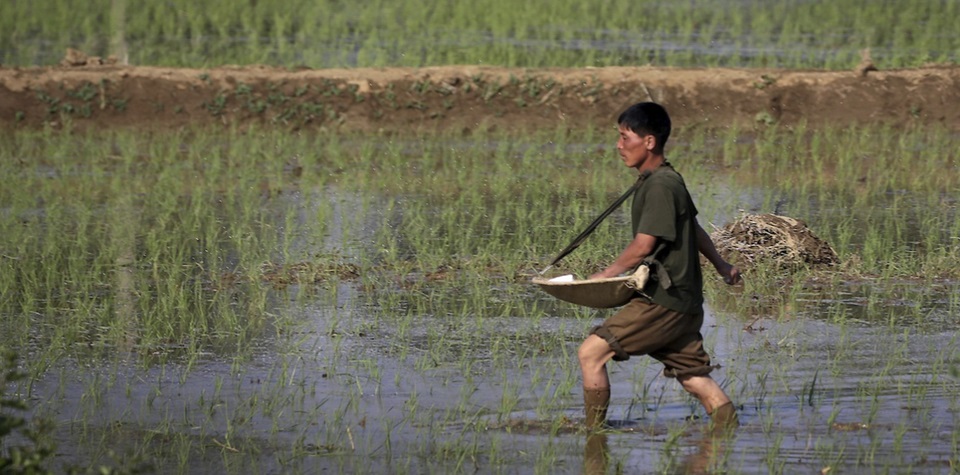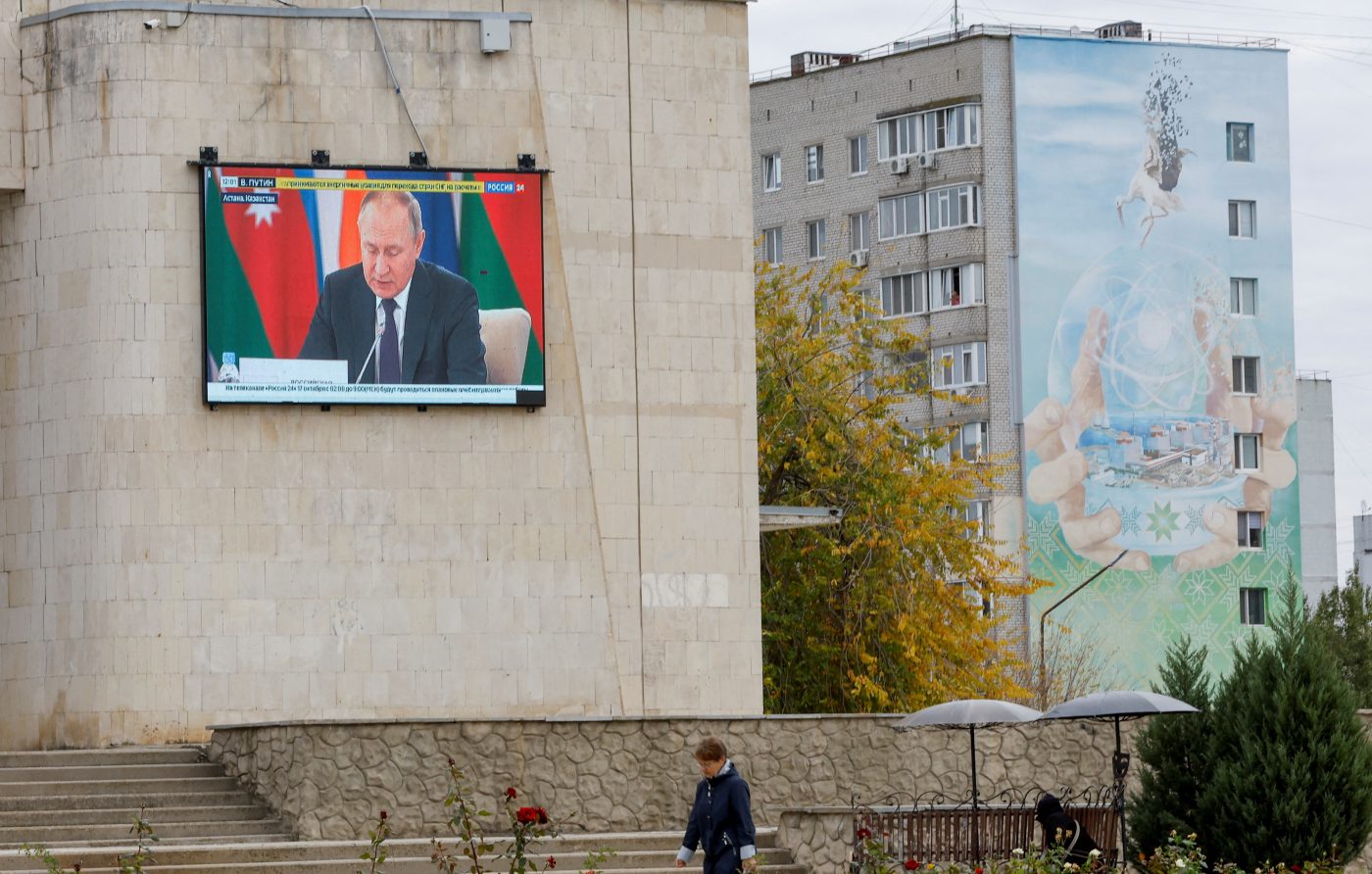December 12, 2023 11:39 AM
Ingyin Naing
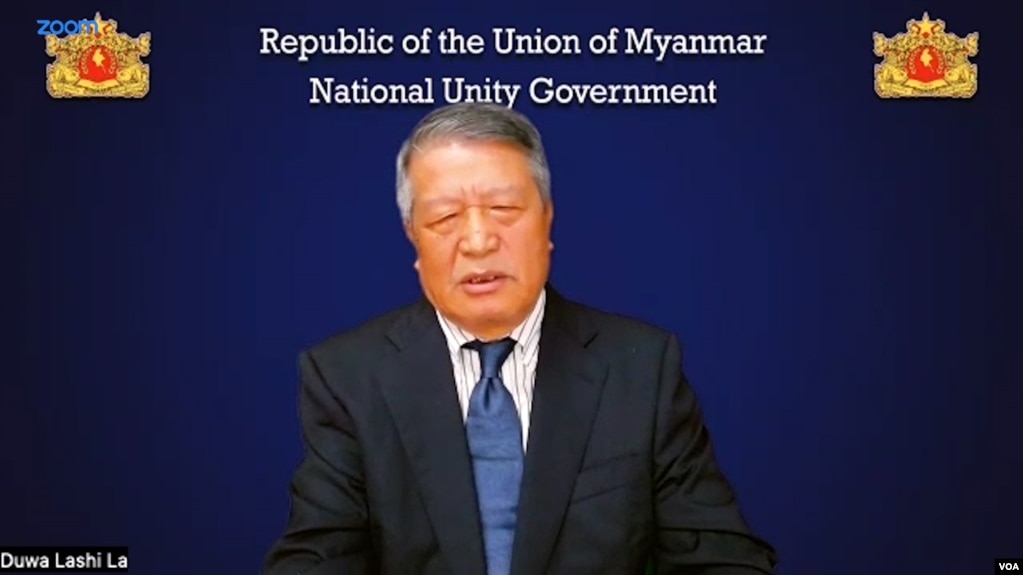
WASHINGTON —
The people of Myanmar are “determined to fight until the end,” the acting president of Myanmar’s opposition government has told VOA.
“The door to dialogue is not closed,” said Duwa Lashi La, while questioning whether conditions are right for peace talks amid ongoing attacks on civilians by the Southeast Asian country's military junta.
Speaking via Zoom from an undisclosed location within Myanmar on December 8, the head of Myanmar's National Unity Government, or NUG, which views itself as a shadow government, also discussed its relationship with China, which recently called for national reconciliation in Myanmar.
The following interview, which took place after a string of defeats for the country’s military junta, has been translated into English and edited for lengthy and clarity.
VOA: Have you determined that Myanmar has reached the stage of civil war? And are the ethnic armed groups on the ground in Myanmar, with help of the NUG, gaining momentum against the military junta?
Acting President Duwa Lashi La: When we look at the current situation on the ground, we can see that the battle has turned in our favor. As I have said before, it will come wave after wave, and the speed is only going to get higher and higher. The public and our [People’s Defense Forces, or PDF] have absolutely nothing to back down from. Very quickly now, [junta leader] Min Aung Hlaing will be completely removed from leadership. He knows his military coup was wrong. The power of the people will be returned to the hands of the people. Until that time, the war will escalate.
As we all know, especially since the beginning of the 1027 operation by the Three Brotherhoods Alliance, we have advanced step by step, and now we have occupied more than 200 [junta] military bases. In addition, many townships have been retaken, such as Kawlin, a very important town in Sagaing region. Many parts of Kokang region have also been retaken, so northern Shan state is in a very good position.
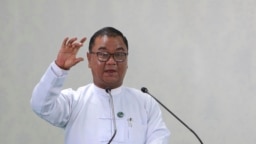
SEE ALSO:
Ethnic Rebel Groups Attack Military Targets in Myanmar
I cannot define the current situation in Myanmar as a civil war. What I can say is that, no matter what, we will continue to fight until Min Aung Hlaing and his military dictatorship are completely removed. However, because the speed of the battle is increasing, I am worried that the suffering of the people will also increase. The people have endured many hardships, yet they continue to encourage and support us. They are determined to fight to the end.
VOA: Since the end of October, we have seen the offensive operations such as Operation 1027, Operation 1111, among other operations in Chin, Rakhine and Karen states against the Myanmar military by anti-junta resistance forces around the country. Is there any NUG connection to these operations?
Duwa Lashi La: Yes, we are cooperating and coordinating, not only politically, but also operationally. Actually, what we want — and what is best — is to have military operations under one chain of command, such as in the future, when we rebuild our federal army.
Currently, even though we don’t have that chain of command, we are able to coordinate operations between different groups. For example, we have designated the north of the country as military region [1], and the PDF are fighting together with EAOs [Ethnic Armed Organizations] there. In the south, Karenni state, Karen state, Tanintharyi division, Yangon division and Bagu division have been designated as the Southern Military Region, and the EAOs and the PDF have been working together there.
It was clear to us since the beginning that our PDF could not stand alone, that we needed military training and bases. So, in the KNU [Karen National Union] area, the PDF participated in joint operations under the command of KNU forces. Similarly, in Karenni State, the PDF has been conducting operations in cooperation with the Karenni Nationalities Defense Force, which is an armed organization. The PDF are everywhere — in the north, in the south and the central regions.
The center of the country is very important because Naypyidaw [the military-built capital and base of operations for the junta] is there. If we can all cooperate to strengthen the central region, we can threaten Naypyidaw. That is our goal.
VOA: From a military point of view, there are those who say it is still too early to conclude that guerrilla forces like PDF can win against the well-trained and armed Burmese army. On the other hand, you have said that the revolutionary forces are winning. Can you explain why?
Duwa Lashi La: When we first started, the whole world asked how it could be possible for us to defeat such a powerful army. My answer is that people are more important than weapons. It is a war with the participation of all our people, so we can win.
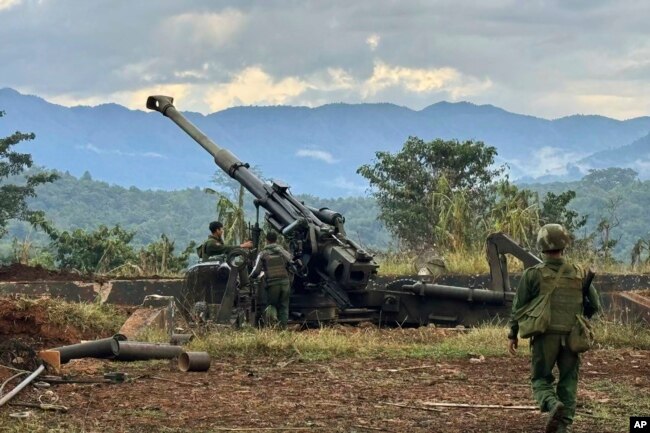
According to a research paper done by the United States Institute of Peace, it is believed that the military cannot return to their previous position. That is a fact. Now so many places in the north have been occupied by revolutionary groups, it is absolutely impossible for the junta to recapture those places. At first, there was nothing to this revolution. We started working with only the belief that we must change things to the way we want them to be. No one had any weapons. Gradually, we have improved, and now we can say that we are equal to, or even more than, the military junta troops.
VOA: Operation 1027, led by the Three Brotherhood Alliance in northern Shan State, included shutting down lucrative criminal activity in enclaves along the Chinese frontier, that was also aligning with China’s anti-transnational crime efforts. So, China backed their operation against the junta, some analysts said. What is your response to this? What is the relationship between the Chinese government and the NUG?
Duwa Lashi La: The NUG's stance is clear. We have a policy of having friendly relations with all neighboring countries: China, India, Thailand and Bangladesh, and we will look after their interests, not only our own. With China, we have three or four different channels available, and we are continually in communication with them. We haven’t seen any clear evidence that China is supporting Operation 1027. They have announced that they want to suppress the criminal gangs that are doing these online scams, which also aligns with the Three Brotherhood’s goals, but they have also said that they respect Myanmar’s sovereignty and won’t meddle in our internal affairs.
VOA: Would you say that the relationship between the NUG and China is strong?
Duwa Lashi La: China still recognizes the existence of the National League for Democracy [NLD] party. The NLD was the people's government in the past. The NUG is in contact with China’s diplomats through their embassies, and we have responded to their concerns. For example, we will not interfere with China's projects in Myanmar; we will help as much as possible. As we have often said, we want to do business with China in the future, so our relationship is generally good.
VOA: There are voices, such as in a recent Washington Post editorial, calling for the U.S. government to officially recognize the NUG as the government of Myanmar due to international media reports that the junta is not doing well and is on the verge of collapsing. Do you feel that the U.S. is effectively supporting the NUG?
Duwa Lashi La: The international community has begun to recognize the NUG. At first, neighboring countries and world did not think we could fight such a strong institutional army. Now that they have become more interested, people are starting to ask what we will do after the junta is finally dissolved. So, in regards to the United States recognizing us, yes, that would clearly be welcomed. We will always welcome support from the U.S. if it is offered. The sooner the U.S. recognizes the NUG, the more helpful it will be toward defeating the junta. Once we accomplish that, we will be able to quickly solve many of the problems that the people are currently experiencing, and establish a new, stable and peaceful Myanmar. International recognition is very important. Since the U.S. is a country that is always encouraging the development of democracy, their encouragement is greatly appreciated, and provides moral support for our struggle.
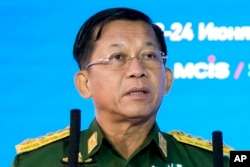
VOA: Recent statements by members of the international community, including China and the United Nations, have called for a peaceful resolution in Myanmar. When do you think the time will be right to start dialogue to bring the conflict to an end and begin rebuilding the country?
Duwa Lashi La: We always say the door to dialogue is not closed. However, we must think about whether the right environment exists for peace talks. We cannot simply use the same formula used in other countries such as South Africa or Cambodia. Even if they were successful there, the situation in Myanmar is different, so the solution must be different. We have never said that we will not meet with them. In contrast, Min Aung Hlaing says that he will not meet with us because, he says, we are terrorists. He has continued to lie by saying that the Nationwide Cease-fire Agreement is a real attempt for peace talks. The talks are merely for show; they aren’t sincere in their claims. They are essentially asking the ethnic armed groups to simply surrender.
If he truly wants peace talks, then he needs to show the people that he is earnest in his desire for change. Right now, our people are being bombed and killed by airstrikes. He must stop the attacks on civilians and the detentions before we can begin thinking about peace talks. To be clear, the public do not trust what Min Aung Hlaing and his military junta have to say. In order to create a situation where the people can believe that [the military] truly want peace, they must announce to the world that they will live under the rule of the people. They must make a clear commitment that they will never again interfere in the politics of Myanmar. Only then we can talk about peace.
